Description

List of the 10 largest industrial companies in Germany
In Germany, industry still accounts for almost a quarter of gross value added. This is one of the highest shares in comparison with the western industrialised countries. Automotive and mechanical engineering are key sectors. There are also many other important industrial sectors. This is also reflected in the list of the TOP 10 German industrial companies:
1. Volkswagen AG, Wolfsburg
Volkswagen is competing with Toyota and General Motors to become the world’s largest car manufacturer. The group has over 670,000 employees worldwide. Industrial production takes place in the automotive sector and includes passenger cars, commercial vehicles and drive technology (power engineering). The main plant is located in Wolfsburg. The second Group division covers financial services including leasing, dealer financing and fleet business. In addition to the core Volkswagen brand, passenger car production includes the Audi, Bentley, Bugatti, Seat, Skoda and Porsche brands. Commercial vehicle brands are Scania and MAN. Volkswagen’s majority shareholder is Porsche Automobil Holding SE (53.1 percent). Other important shareholders are the State of Lower Saxony (11.8 percent) and Quatar Holding (14.6 percent). This makes VW Group one of the most important industrial companies in germany.
Update 2023: The Group plans to invest a total of 180 billion euros by 2027, particularly in the areas of digitalization and electrification. The aim is to keep pace with the competition, especially in the two key markets of China and North America.
Update 2024: Electrification will continue to play a particularly important role at the Wolfsburg-based Group in 2024. Special attention is being paid not only to battery system development, but also to the expansion of the electric charging network.
2. Mercedes-Benz Group AG, Stuttgart
Like Carl Benz, the name Gottlieb Daimler stands for German automotive history. Today, Mercedes-Benz Group AG is the second largest German automobile manufacturer with almost 300,000 employees around the globe. The company has been trading as Daimler AG since 2007 after the demerger of Daimler and Chrysler. The group has three divisions managed as a company: Mercedes-Benz AG (passenger cars), Daimler Truck AG (trucks, commercial vehicles) and Daimler Mobility AG (financing, leasing). Important production sites in Germany are Stuttgart-Sindelfingen, Stuttgart-Untertürkheim and Rastatt. Production takes place worldwide.
3. BMW AG, Munich
On the market, the BMW Group operates as the BMW Group. “BMW” stands for “Bavarian Motor Works”. From its beginnings as an engine manufacturer, BMW has developed into Germany’s third largest automobile producer. Premium vehicles and motorcycles characterize the BMW brand. Other group brands – through BMW subsidiaries – are Mini and Rolls-Royce. The BMW headquarters is located in Munich, the largest production site in Germany is in Dingolfing. BMW also produces in Great Britain, Austria, the USA and China. The BMW Group has almost 134,000 employees. The Quandt family of entrepreneurs (mainly Susanne Klatten) holds substantial shares in the Group, the majority (53.2 per cent) is free float.
4. Siemens AG, Munich/Berlin
Siemens has written German industrial history. Today, Siemens is a globally active conglomerate focusing on technology and electrical engineering. It consists of numerous German and international group companies with a total of 385,000 employees. The diverse production program includes automation and drive technology, generators, turbines and compressors, medical technology, power plant technology, safety technology, rail vehicles and railway technology. The founding family of Siemens continues to hold a 6 percent stake, with institutional investors holding 70 percent of the shares. This makes Siemens one of the most important industrial companies in germany.
5. Robert Bosch GmbH, Stuttgart
Bosch emerged from a Stuttgart backyard workshop for precision mechanics and electrical engineering founded in 1886. Today, with almost 400,000 associates, it is a globally operating conglomerate and one of the world’s largest automotive suppliers. The company is over 90 percent owned by the Robert Bosch Foundation. The automotive supply sector – automotive engineering – accounts for some 60 percent of Bosch sales. Other important areas include industrial technology (Rexroth), consumer goods (household appliances – BSH Hausgeräte GmbH – and power tools), and energy technology – and building technology (with the Junkers, Buderus, Loos, and Bosch Security Systems brands). This makes Robert Bosch one of the most important industrial companies in germany.
6. AUDI AG, Ingolstadt
AUDI is a traditional German car brand and has been part of the Volkswagen Group since the 1960s. Today the AUDI brand stands for premium vehicles. Within VW, AUDI AG forms a relatively independent sub-group and employs a good 90,000 people. AUDI also includes the sports car manufacturer Lamborghini and the motorcycle manufacturer Ducati – both Italian companies. German production sites are Ingolstadt (parent plant) and the nearby Münchsmünster, Neckarsulm and Heilbronn. AUDI also produces in Belgium, Spain, Slovakia, Hungary and Russia, as well as in China, India, Mexico and Brazil.
7. Continental AG, Hanover
From a small Hanoverian rubber factory bought in 1869, Continental has developed into one of the largest automotive suppliers in Germany and worldwide. For many decades, Continental’s business model consisted solely of tire production. In recent years, the Automotive Technologies division has been established as a second pillar. The focus is on solutions for autonomous driving, driving safety and driving networking. Continental employs more than 241,000 people. The Schaeffler Holding of the Schaeffler family of entrepreneurs has a significant influence on Continental with a 46 percent share. Schaeffler AG – also an automotive supplier – is a sister company.
8. thyssenkrupp AG, Essen
The names “Thyssen” and “Krupp” stand for two industrial giants on the Rhine and Ruhr. The thyssenkrupp group was formed in 1999 through the merger of Friedrich Krupp AG Hoesch-Krupp with Thyssen AG. The Alfried Krupp von Bohlen und Halbach Foundation holds just under 21 percent of the shares in the company. Although today a diversified industrial group, thyssenkrupp AG is still Germany’s biggest steel producer. The business of thyssenkrupp is divided into five areas: Components Technology, Elevator Technology, Industrial Solutions, Materials Services and Steel Europe. The Group has over 162,000 employees worldwide.
9. ZF Friedrichshafen AG, Friedrichshafen
ZF Friedrichshafen is a leading global driveline and chassis technology company with approximately 260 locations in 41 countries. The company’s history began in 1917 as a gear factory – hence the name “ZF” – with significant participation of Luftschiff Zeppelin GmbH. Today, ZF Friedrichshafen is over 90 percent owned by the Zeppelin Foundation, which is administered by the city of Friedrichshafen. The company’s business is divided into the divisions Car Driveline Technology, Car Chassis Technology, Commercial Vehicle Technology, and Industrial Technology. ZF Friedrichshafen employs approximately 160,000 people. This makes ZF one of the most important industrial companies in germany.
10. Opel Automobile GmbH, Rüsselsheim
Opel is one of the oldest car manufacturers in Germany. The group was founded in 1862 and has its headquarters in Rüsselsheim am Main. In recent years, the industrial company has changed ownership several times: from General Motors to the French Groupe PSA.
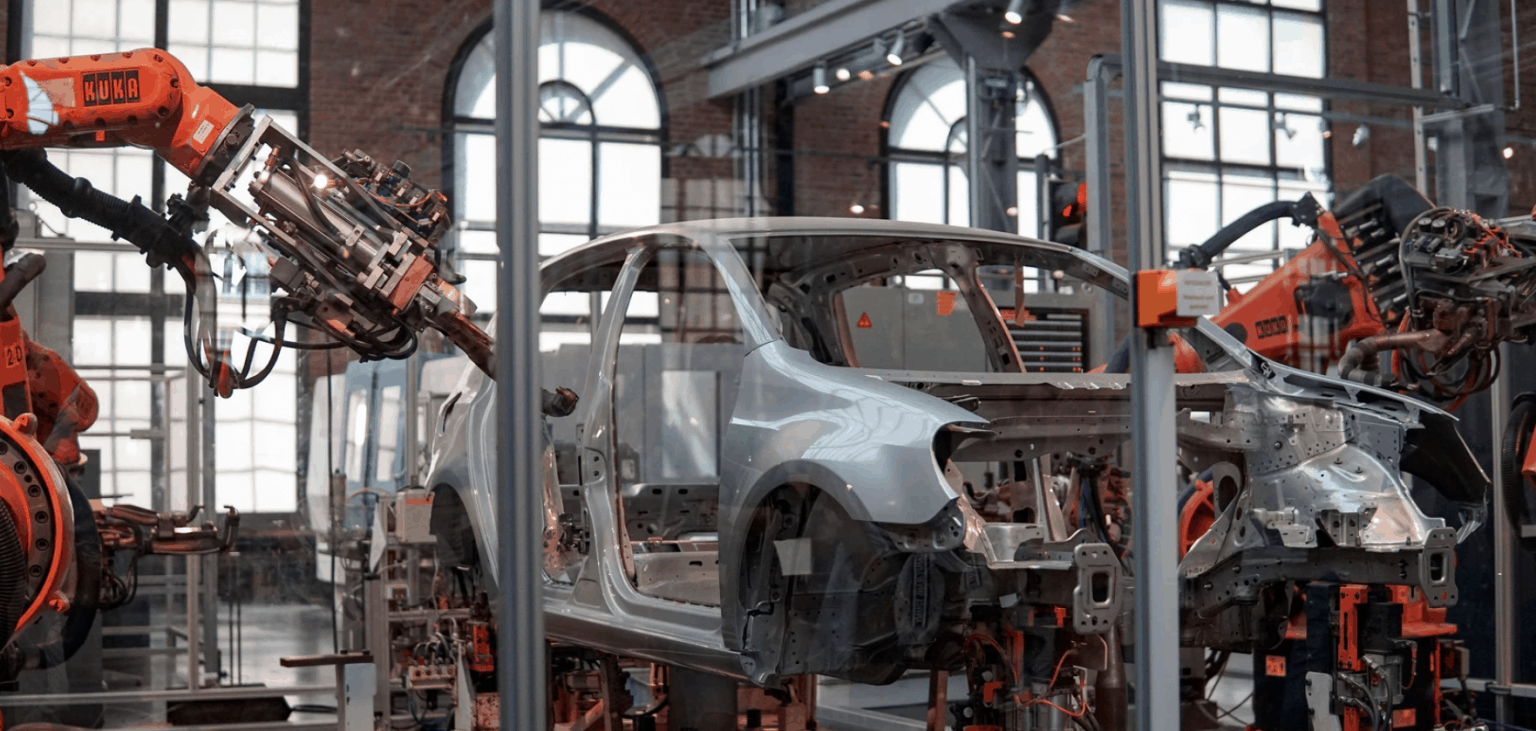
This information is included in the database
- Company name
- General contact data (address, e-mail address, telephone number, URL)
- Name of the management
- Serial letter suitable for addressing the management (e.g. “Dear Dr. Müller”)
- Sales figures for the years 2021, 2020, 2019, 2018, 2017, 2016 and 2015 (taken from the annual and consolidated financial statements)
- Employee figures for the years 2021, 2020, 2019 and 2018 (taken from the annual and consolidated financial statements)
- Sector classification & Field of activity
Note: If the sales and employee figures are not included in a company’s own financial statements but in the parent company’s consolidated financial statements, the data from the respective consolidated financial statements are provided.
Headquarters of Germany’s largest industrial manufacturers

Following areas are included
- Electrical industry, e.g. Infineon Technologies, Busch-Jaeger Elektro GmbH
- Automotive supply industry, e.g. Robert Bosch GmbH, Webasto SE
- Medical technology, e.g. Siemens Healthineers AG, KARL STORZ SE & Co. KG
- Mechanical engineering, e.g. Krones AG, GEA Group AG
- Construction supply industry, e.g. HeidelbergCement AG, Gira Giersiepen GmbH & Co. KG
- Vehicle manufacturer, e.g. Mercedes-Benz Group AG
- Optics, e.g. Carl Zeiss AG
- Glass and ceramics, e.g. Schott AG
- Tool manufacturer, e.g. Leistritz AG
Picture source: Christopher Burns, Lenny Kuhne
The German industry: Statistics and facts
Compared to some other western countries, Germany is still an industrialized country. Many goods are still produced in the country itself. Services are important, but do not have the share as in other economies. German industry is particularly strong in four sectors: automotive, mechanical engineering, chemicals and electronics. Industrial groups such as Volkswagen, Mercedes-Benz, BMW, BASF and Siemens are also at the top of their industry on a global scale. Mechanical engineering, on the other hand, is dominated by medium-sized companies.
Industry and the manufacturing sector in Germany stand for around 2.2 trillion euros. Euro annual turnover and 7.5 million employees. The export ratio is only slightly below 50 percent. It is a supporting pillar of the German economy. There are about 47,000 industrial companies, many of which are still family-owned. The strengths of German industry are based on its innovative power, high productivity and the quality of its products. Many companies – including medium-sized ones – are world market leaders in their field. Their weaknesses are high labor and energy costs, a growing shortage of skilled workers and a heavy tax burden.
Digitization – keyword Industry 4.0 – is and remains a challenge across all industries. As a traditional key sector, the automotive industry is facing a fundamental structural change. New forms of mobility will radically change the automotive industry.

Any questions? Get in touch!
Leo Semmelmann, Founder
contact [at] researchgermany.com
+49 (0) 89 92927741
We are looking forward to help you in case of any questions, remarks and individual requests. Feel free to get in touch via email, live chat or phone. We can also offer you package prices and can create individual lists.

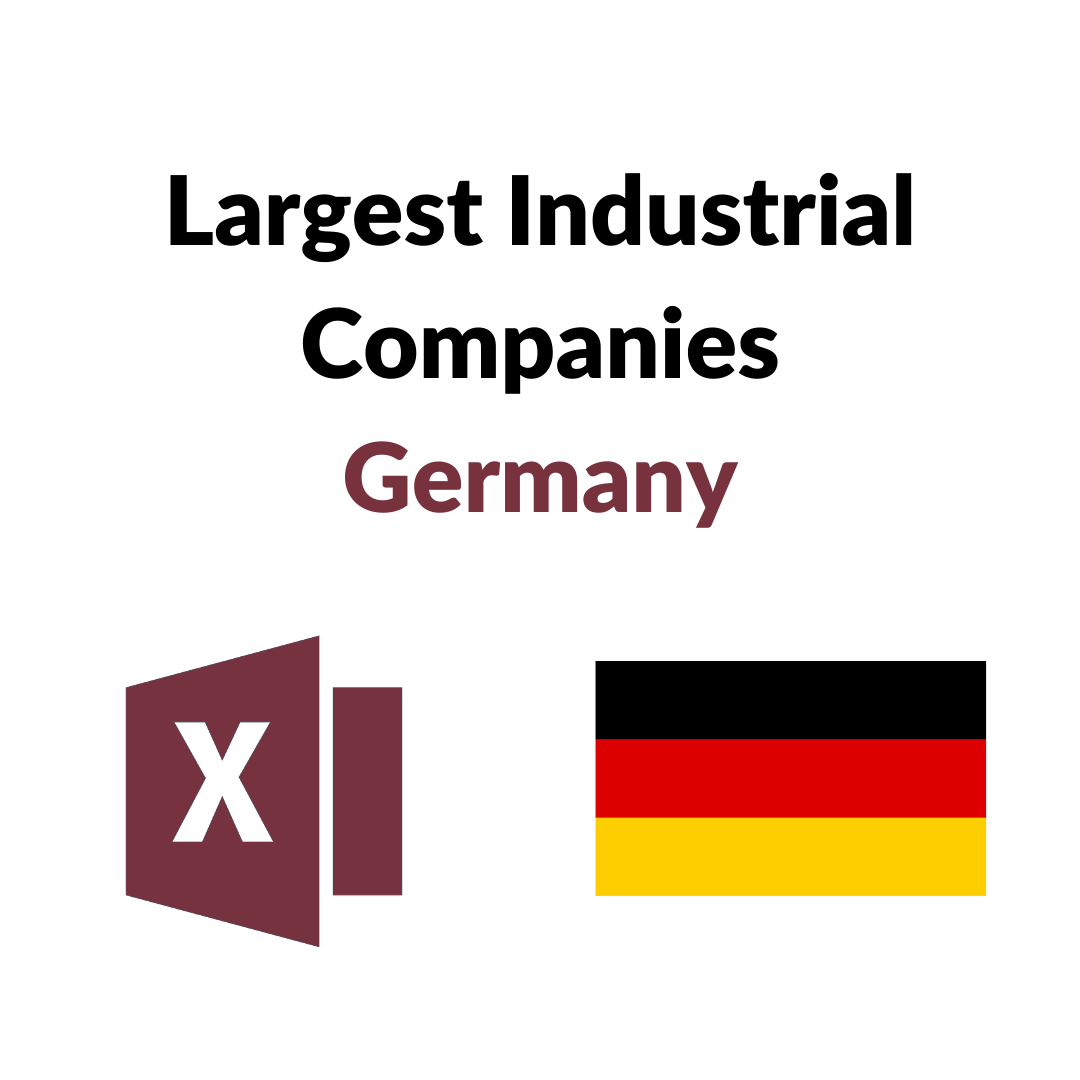
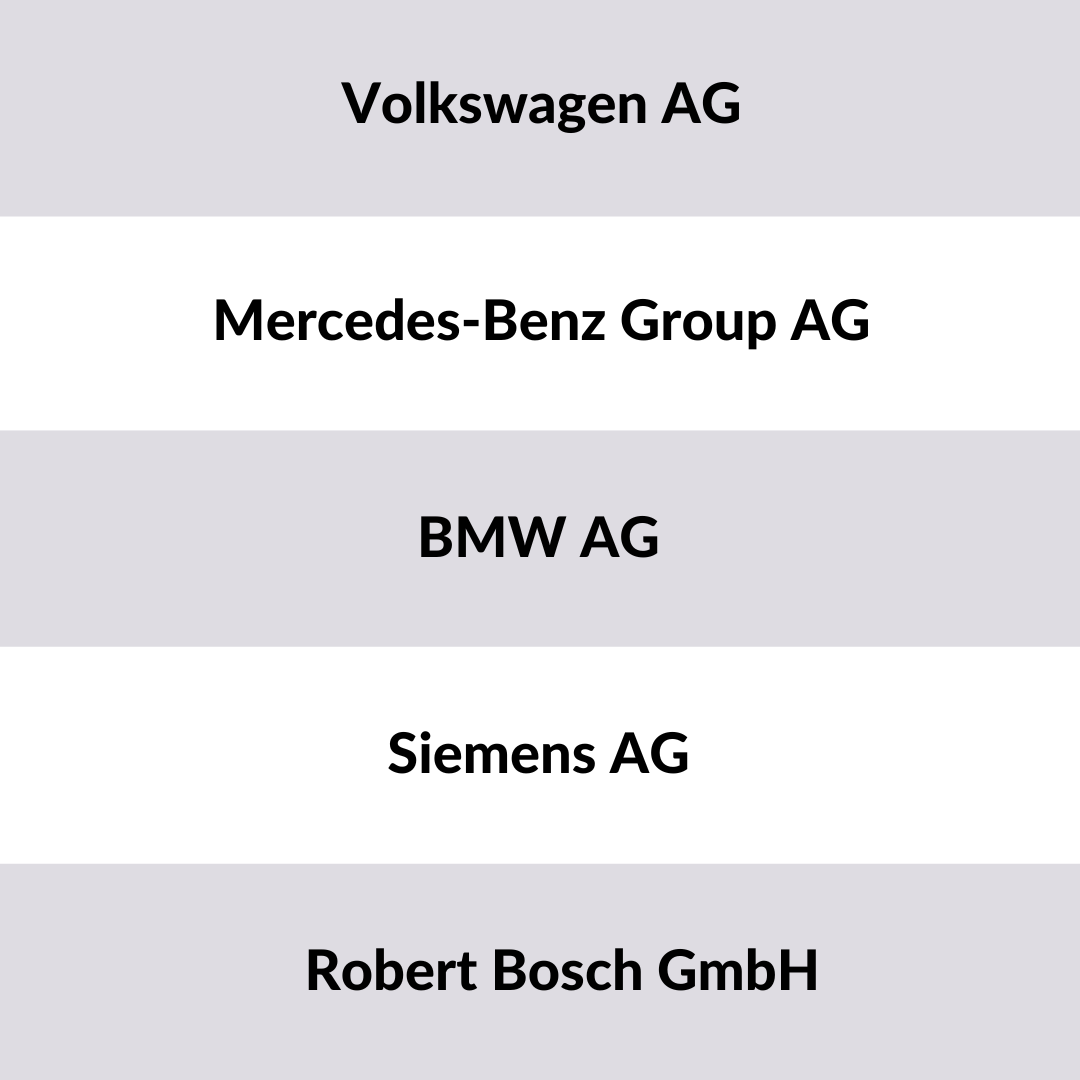
 Contains the 2,000 largest industrial companies from Germany from numerous sectors such as mechanical engineering, electrical industry, medical technology, construction suppliers, automotive suppliers, etc. The list is an excerpt from our
Contains the 2,000 largest industrial companies from Germany from numerous sectors such as mechanical engineering, electrical industry, medical technology, construction suppliers, automotive suppliers, etc. The list is an excerpt from our 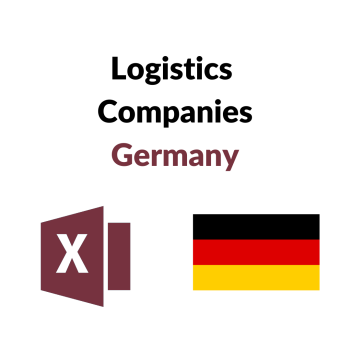
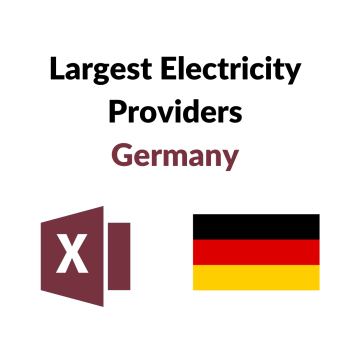
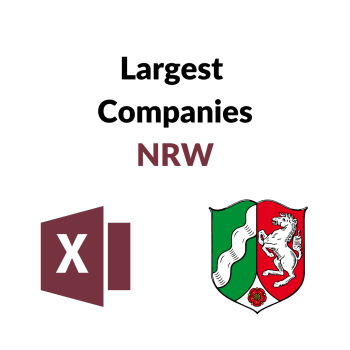
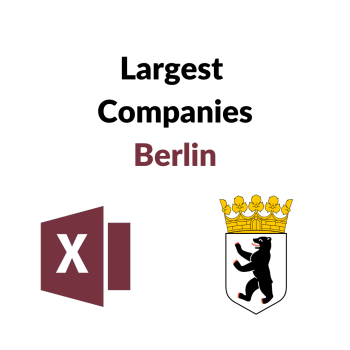
A. Nissen (verified owner) –
+ perfect set-up in Excel
+ comprehensive overview of German market
+ easy purchase & download
+ data up-to-date
+ great customer support
David Lasalle (verified owner) –
Good database for business development in Germany. The coverage of the most important industries is very good and the data is all up-to-date. However, we would have preferred to have personal contact persons to get in touch with.